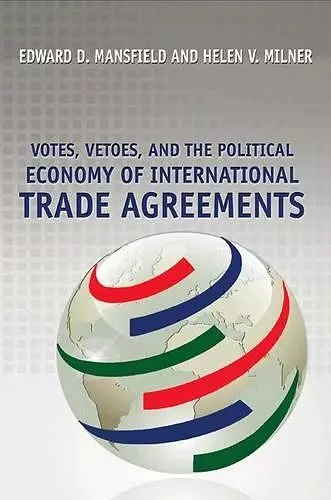Votes, Vetoes, and the Political Economy of International Trade Agreements
Edward D Mansfield author Helen V Milner author
Format:Paperback
Publisher:Princeton University Press
Published:18th May '12
Currently unavailable, and unfortunately no date known when it will be back

Preferential trading arrangements (PTAs) play an increasingly prominent role in the global political economy, two notable examples being the European Union and the North American Free Trade Agreement. These agreements foster economic integration among member states by enhancing their access to one another's markets. Yet despite the importance of PTAs to international trade and world politics, until now little attention has been focused on why governments choose to join them and how governments design them. This book offers valuable new insights into the political economy of PTA formation. Many economists have argued that the roots of these agreements lie in the promise they hold for improving the welfare of member states. Others have posited that trade agreements are a response to global political conditions. Edward Mansfield and Helen Milner argue that domestic politics provide a crucial impetus to the decision by governments to enter trade pacts. Drawing on this argument, they explain why democracies are more likely to enter PTAs than nondemocratic regimes, and why as the number of veto players--interest groups with the power to block policy change--increases in a prospective member state, the likelihood of the state entering a trade agreement is reduced. The book provides a novel view of the political foundations of trade agreements.
"[T]heirs is a magnificent book, among the most provocative written on the subject... Nobody interested in the political economy of trade can ignore this book. Without question, it will be widely read and cited, as it deserves to be."--Kerry A. Chase, Review of International Organizations "Votes, Vetoes and the Political Economy of International Trade Agreements ... stands as the most comprehensive modern treatment of the domestic political economy of trade agreements. It is essential reading for economists, political scientists, and policy analysts interested in the trade agreements and the evolution of the international trade system."--Pravin Krishna, Journal of Economic Literature "Overall, this is a highly compelling book that deserves a wide readership. The authors managed to anticipate and defuse many potential objections to their argument. Moreover, the empirical examination serves as a model of excellent research."--Andreas Dur, Perspectives on Politics
ISBN: 9780691135304
Dimensions: unknown
Weight: 340g
224 pages